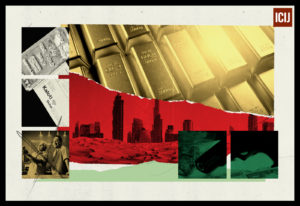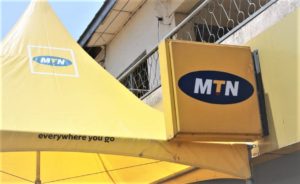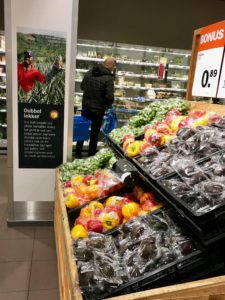Some of our top stories of 2020
In 2020, while the pandemic raged. We kept at it, and brought you great stories. Here are a few of them. We look forward to continuing this important work.
Have a Happy New Year.
Ghana and the rosewood curse
 When the final stock is eventually taken, the illegal logging of rosewood would be found to have left a deep scar on Ghana and mostly its vulnerable people and communities. The level of illegal logging of the precious tree species for export has left a gaping hole in the Savannah forests of the country’s northern regions, largely poor and far behind on the development index.
When the final stock is eventually taken, the illegal logging of rosewood would be found to have left a deep scar on Ghana and mostly its vulnerable people and communities. The level of illegal logging of the precious tree species for export has left a gaping hole in the Savannah forests of the country’s northern regions, largely poor and far behind on the development index.
Ghana – a country at the verge of so many possibilities; economic growth, human development and social cohesion, but also in downward spiral. The country is endowed with so many natural resources; gold, iron ore, cocoa, oil, timber species, including rosewood, but her people living in areas where these resources abound are steeped in poverty, in need of ordinary potable water and decent living standards.
People of the regions of the North are bearing the brunt of the vicious rape of their natural resources. The Northern, Savannah and North East regions, were once one region, simply known as the Northern Region. It was the largest region in the country. But after a referendum in December 2018, the region was split into three in 2019.
The regions once had large reserves of rosewood, but not anymore. The rosewood trees in these regions are practically gone – from farmlands to forest reserves, greedy wood merchants, with the backing of some public officials and political appointees, using subterfuge, deceit and clout have ravaged the regions’ Savannah lands and plucked out every available rosewood; including trees with diameters so small that they aren’t good for export.
Jean-Louis Chanel: The Frenchman who sold timber from Ghana

Jean-Louis Chanel is the name of a former France-Ghana business counsellor listed in the Panama Papers, among thousands of other names linked to the infamous law firm Mossack Fonseca. Despite his name appearing in the leaks in 2016, his appointment as counsellor was renewed up to November 2019. He was even awarded the French Order of Merit in recognition of 36 years of service to the French State.
Appearing in the Papers does not suggest wrongdoing, and in France, there isn’t any law forbidding high ranking officials from owning offshore companies, as long as they’re established abroad. Nonetheless, how does France consider someone with links to a tax haven as the suitable representation of its values abroad? And was this shell company owned by Chanel in full compliance with Ghana tax regulations at the time ? What kind of business activity was it involved in?
A multifaceted businessman
Chanel surely wore many hats in 2016. In addition to his role as special advisor on French-Ghana business relations, he was also a vice-president of the French Chamber of Commerce and Industry in Ghana; a recognized “Knight” of the Order of Merit, as well as the director of the Sylva Spare Plus, back then a Renault Trucks concessionaire.
He was also, less officially, the ultimate owner of the offshore company “Sylvafrica”, based in Seychelles, as revealed by the Panama Papers dataset published in April 2016 by the International Consortium of Investigative Journalists and its partners worldwide.
Ghana gold exporters in middle of suspicious $2.8b transactions tied to Kaloti and others
 This article has been edited to include a response from the lawyers of Asanska Jewellery Limited and the letter we wrote to them seeking comments.
This article has been edited to include a response from the lawyers of Asanska Jewellery Limited and the letter we wrote to them seeking comments.
Ghana might be the largest producer of gold in Africa, but as available information shows, the country very likely is not getting its fair share of money from gold exports. The activities of the Dubai-based gold trader and refiner, Kaloti Jewellery Group was being looked into by US investigators – the investigation was closed without any action. It was discovered during the investigation that some Ghana gold exporters received part of the multi-billion-dollar payments made by Kaloti and other businesses to companies and individuals around the world, according to a new leak of confidential documents from the United States Department of Treasury.
These Ghana exporters, however, have not been cited for wrongdoing.
The five gold exporters in Ghana have been cited in connection with highly suspicious dealings with businesses including Kaloti, and transfers of funds within the gold industry amounting to $2.8 billion.
The records show that bank compliance officers believed that Kaloti has dealt in suspicious transactions in gold over a period of time, and some of these funds were paid to the companies in Ghana.
The information about the Ghana gold companies appears in the FinCEN Files, the new cross-border investigation by Ghana Business News, more than 109 media outlets in more than 88 countries, Buzzfeed and the International Consortium of Investigative Journalists (ICIJ).
Ghana could lose GH¢400m in capital gains tax on MTN tower deal
 Ghana could miss out on as much as GH¢400 million in capital gains tax following the sale earlier this year of MTN’s investment in a mobile phone tower business in the country.
Ghana could miss out on as much as GH¢400 million in capital gains tax following the sale earlier this year of MTN’s investment in a mobile phone tower business in the country.
Ghana may not be able to tax the sale because it took place offshore. MTN sold its shares in a company in the tax haven of the Netherlands, which owns the towers.
MTN’s latest financial results, published last month, say that its profit of 4.8 billion South African rand (GH¢1.6 billion) from the sale is “non-taxable”.
MTN’s financial results did not say why it thinks Ghana cannot tax its huge profit. The South African telecoms giant did not respond to requests for an explanation.
But with capital gains taxed at 25 per cent, it means the country could lose out on a revenue windfall of more than GH¢400 million.
The possibility of missing out on such a huge sum comes as Ghana has been compelled by the outbreak of the global COVID-19 pandemic to revise its growth downward, making every tax pesewa count to fill in the gap. Growth was revised from 6.8 per cent to just 0.9 per cent.
In search of Kwabena, the pineapple farmer who gives European consumers a nice feeling

A Dutch retailer claims that buying containers of fresh fruit, produced by Blue Skies in Ghana, helps improve living conditions in the villages of the growers. Is that really true and is it sustainable? An investigative journalist from the Netherlands looked into it and shares his experiences.
Not so long ago, the fruit and vegetable department of numerous branches of the leading Dutch supermarket chain Albert Heijn displayed a poster with a photo of a pineapple farmer. It shows ‘Kwabena from Ghana’ whose produce is ‘double nice’: ‘Our fruit not only tastes nice, it also gives you a nice feeling. That’s because our growers, together with the AH Foundation, contribute to better living conditions for the local community.’ The message is clear: buy a plastic container of fresh fruit and do your bit to make the world a better place.
The AH Foundation – AH is short for Albert Heijn – is a relief fund that builds classrooms, boreholes and other public facilities in the African and South American countries that supply the retailer with fruit, vegetables and flowers. In 2019, the fund’s budget was €2.6 million, of which the supermarket chain paid €1.8 million and its suppliers the rest. Parent company Ahold Delhaize had a turnover of €66 billion.
Does the supermarket really contribute to the development of the regions that supply its fruit? And – not unimportant for the conscious consumer’s ‘nice feeling’ – what about the sustainability of this product? Albert Heijn claims to be the most sustainable supermarket in the country. I went on a quest to verify these claims and to search for Kwabena, the poster model. My visit to Ghana took place before the outbreak of the COVID-19 pandemic.
In this West African country, Albert Heijn buys its fruit from Blue Skies, a British multinational which also supplies numerous other European supermarkets, including the UK, France, Italy and Denmark. Blue Skies, founded in 1997 by Anthony Pile, is a commercial success story, with factories in six countries, a revenue of £108 million and a profit of £3.3 million (2018).
Copyright ©2021 by Creative Imaginations Publicity
All rights reserved. This article or any portion thereof may not be reproduced or used in any manner whatsoever without the express written permission of the publisher except for the use of brief quotations in reviews.
